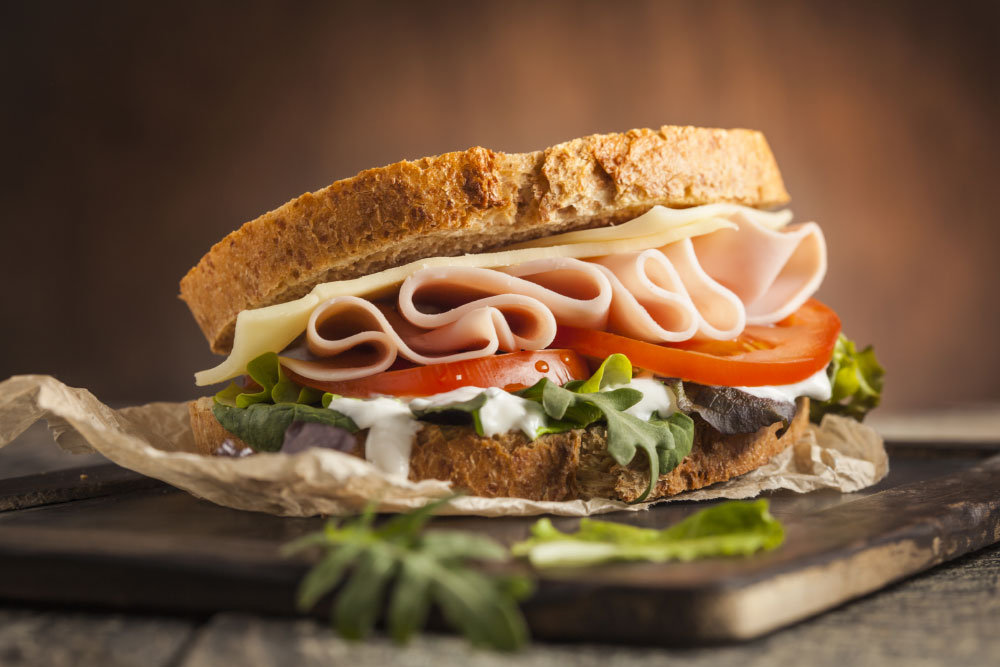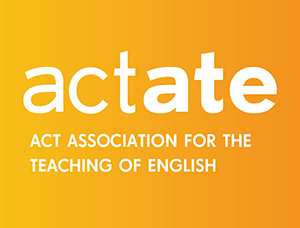
Years 11 & 12 Category: Winner
Home > 2018 Winning Entries > Years 11 & 12 Category > A Nice Sandwich (with apologies to George Orwell) by Kassandra Stewart
A Nice Sandwich (with apologies to George Orwell)
by Kassandra Stewart, Melba Copland Secondary School

If you look up ‘sandwich’ in the first cookery book that comes to hand you will probably find that it is unmentioned; or at most you will find a few lines of sketchy guidance which give no ruling on the most important points. This is curious because sandwiches are one of the main stays of civilization. When I sift through my requirements for a perfect sandwich, I find five golden rules.
The first rule of sandwich making is to appreciate that sandwiches are a loaf-changing experience. In modern, multi-cultural societies of the new millennium, the sandwich is ubiquitous – spread to all corners of the globe. To fully appreciate the beauty of a sandwich, however, you must have an early and positive exposure to them in childhood. In Australia, sandwiches are a vital component of any childhood lunch, but not all cultures are as fortunate. Take every opportunity to build familiarity with the humble yet conquering sandwich. Those denied a regular sandwich intake may be viewed as spoilt by other choices, but it is a deprivation; a punishment that can remove a lifetime appreciation of the special sustenance you are receiving.
The sandwich is the basis for lifetime learning and socialisation. A simple school-lunch sandwich can make you friends, and swapping sandwiches should be encouraged as an introduction to capitalism, communism, communion, contact, company and cooperation. Swapping sandwiches for a “more attractive” filling is not a complaint against the maker: tomorrow, the swap is likely to be to obtain the same filling they swapped away today. That’s commerce.
Years after being introduced to the sandwich, it can still have a remarkable restorative effect. Who needs to gobble chocolate or ice cream as a comfort food when you can make yourself a fairy bread sandwich? Just for the heck of it. Invoke those memories of childhood parties and forget your current worries. The hard facts about early exposure to sandwiches also involve crusts and ethnically diverse loaves. Do not discriminate against diverse doughs. A child deprived of variety is missing out and is likely to grow up with prejudice deeply ingrained. They are unlikely to ever experience the wonders of black bread, instead bingeing on bagels and brioche. Coloured and textured bread is kind of like the crust of every loaf: there is a stereotype that says no-one wants it. Crusty bread and variety are actually the best part, and once this is realised you will never look at the white sandwich loaf the same way again.
The second rule of sandwich making is first to understand the reason for making the sandwich. Not every sandwich needs raisins, but it does need a raison d’être – a reason for being. Without a picture of purpose, perfectly presented pumpernickel may be preposterous. A sandwich can cure hunger, boredom and emotional distress; but one sandwich cannot cure it all. Take stock of the requirements before taking stock of the cupboard. Understanding the reasons will help in following subsequent rules and ensure your sandwich experience is the most successful that it can be.
Eating to cure hunger, which is usually the most sensible cure, can be a bit boring and tends to lead to a boring sandwich. Avoid this pitfall of the perfunctory, lest you need to make another sandwich to cure boredom. Every sandwich can be an exciting sandwich (even if it’s only a little exciting). The antidote to boredom is to really experiment with the sandwich. It is a difficult rule to follow if the rule says “don’t follow the rules”; but dare to be different. Not only might you enjoy the creativity of construction, but you may find flavours and funky fillings. Boredom will be banished and your fame may flourish. Emotional distress can be easily displaced by a simple sandwich. Avoid the overdose of chocolate or ice cream and head for the childhood favourite of fairy bread; fly away from your problems. Once the reason for creating the sandwich is understood, subsequent rules and choices will lead to a superior sandwich solution.
The third rule of sandwich making is that the bread is important. Of course, bread is important for the simple reason that, by many definitions, you cannot have a sandwich without it. But it is important not to underestimate its importance, influence and allure. The choice of bread can make or break a sandwich… and breaking it is bad as no-one can enjoy a crumbling sandwich. Steer clear of any bread that isn’t flexible enough to hold it all together. Not every filling goes with every bread and not every bread goes with every filling. This is a balance you must get right to have a successful sandwich making and eating career. Every expert has their failures occasionally. If you happen to make a bad sandwich decision, never fear, it is not the end of the world. Just don’t let it happen again – life is too short to experience the same bad sandwich more than once!
Some say the filling should be chosen first but that is analogous to building a house from the roof down. Clearly the cornerstone of a sandwich is the bread, and it is folly to formulate the filling without firm foundations. The choice of bread sets the scene for the creation to come. Do not however, be disheartened if your ideal bread is not available for today’s sandwich; there is always room to make that perfectly crafted masterpiece tomorrow. Today, stay in the moment, just you and the bread. Let your imagination run free… well not too free. Remember that not all fillings go with all breads.
The fourth rule of sandwich making is that there needs to be enough, but not too much substance. The choice of bread has been made from hundreds of styles. Each has a traditional filling or topping, making the “notable sandwiches” list of Wikipedia. Don’t feel constrained. Be bold. Sometimes unusual sandwich fillings make the best sandwiches – Vegemite and apricot jam, peanut butter and banana, potato chips (crisps or fries) and kiwifruit; even try some breakfast cereals on your toast to save some time in the morning. If tradition is your thing, there is nothing wrong with traditional jam, or Vegemite and cheese, or ham, cheese and tomato. Do whatever you’re feeling like; let the creative juices flow – just try not to get the bread too soggy with those creative juices.
Do not let one bad sandwich experience taint your view of what is possibly one of the most versatile foods ever created. John Montagu, the 4th Earl of Sandwich, and the eponym of our humble sandwich would surely be proud to think we honour his title and are still making sandwiches, and enjoying them. It has been suggested that the Earl’s epitaph should read: “Seldom has any man held so many offices and accomplished so little.” On the contrary, as we approach the 250th anniversary of his birth, the 4th Earl of Sandwich, without any rules to follow, has provided a wonderful legacy. Some historic context to the sandwich can only re-inforce its standing and encourage us to continue, and expand, the tradition.
The final rule of sandwich making is barely a rule at all – ultimately important yet almost implicit. Enjoy your sandwich. Ensure your sandwich is enjoyed in an appropriate location, with the appropriate accompaniments and company – whether that is a cucumber sandwich at a tea party with the Queen of England or a plain tomato sandwich on sourdough, curled up on the couch with nothing but a good book. Follow these simple rules and you can continue and extend the tradition of the all-consuming sandwich.
Judges’ Comments
The judges laughed out loud at this amusing treatise on the humble sandwich. The author uses a combination of whimsy and exposition to advantage. No apologies to George Orwell are needed! Congratulations on a literate, entertaining and well researched piece.



